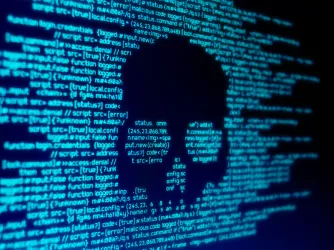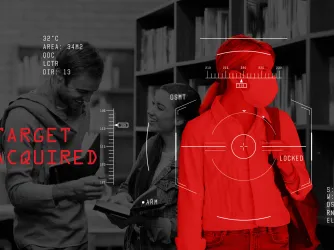Table of Contents
Volokh on 'Hostile Environment Harassment' and Campus Speech Codes
I recommend to you this interview on reason.tv with UCLA School of Law professor Eugene Volokh, a good friend of FIRE's, on "the Bill of Rights in 2010." Here's an excerpt with particular importance to FIRE's work:
reason [reason.tv producer Ted Balaker]: If you had to choose one or two of the biggest threats to free speech these days, what would they be?
Volokh: One is the notion of hostile environment harassment: that people expressing their views, people making jokes, sometimes people posting sexually themed material, sometimes people making political statements or religious proselytizing, can become legally punishable discrimination simply because it is—and I'm quoting here the very vague language of the law—"severe or pervasive enough to create a hostile, abusive, or offensive environment" based on race, religion, sex, sexual orientation, and the like. This could be in employment, in education, in public accommodations. There is the limitation that it can support a lawsuit only if it creates a hostile environment for a reasonable person, but it's obviously a very vague and very broad standard.
This rule has become essentially a nationwide speech code for America's workplaces. The code is not just imposed by the private property owners who run the workplaces, who of course are entitled to restrict speech on their property and by their employees. Rather, it is imposed by the government; employers are being coerced into suppressing certain kinds of speech by fear of massive liability. And once that theory is recognized in the workplace, it becomes applicable in other places as well. The latest generation of campus speech codes is based on the theory that if students or professors say things that in the aggregate are offensive enough to people based on certain attributes that speech stops being constitutionally protected speech and magically becomes the conduct of discrimination, which is legally punishable.
[...]
There was a lawsuit—which fortunately was rejected, but it took a trip to the California Supreme Court to do it—against Warner Brothers for allowing sexually themed speech in the writers' office for the television show Friends. A writer's assistant found this created a sexually hostile environment for her because there were all these sexually themed and occasionally misogynistic comments being made. And one might say, well, of course it's constitutionally protected, but it's still a workplace. We say it's constitutionally protected even though it's in the workplace because speech should be protected from government suppression everywhere.
reason: That standard would shut down most Hollywood scriptwriting meetings.
Volokh: That's right. But even if you get out of this zone of what some might call communicative workplaces—workplaces that are all about the creation of speech—still for most people, whether they work at a factory, at a coffee shop, or wherever else, that's where they spend a third of their hours. That's where they have conversations with their coworkers. For many people that's the most they have by way of conversation outside of their family. And here the government is coming in and—indirectly but quite clearly, through the coercive force of the threat of massive liability—suppressing speech because it conveys allegedly offensive viewpoints.
The notion of "hostile environment harassment" has been used time and time again to suppress or punish protected speech on college campuses. An interesting note: FIRE joined an amicus brief to the California Supreme Court in the Friends case to which Eugene refers above: Lyle vs. Warner Brothers Television Productions et al. (You can read all about the case and FIRE's involvement at the link.) And of course, FIRE's interest in tackling this problem continues; check out FIRE's more recent work on this issue in California.
Recent Articles
Get the latest free speech news and analysis from FIRE.

Will free expression make a comeback at Haverford College?

FIRE statement on FCC approval of Skydance-Paramount acquisition

The mercenary spyware industry is a menace to global free expression
